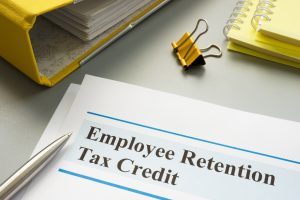The IRS warns businesses about ERTC scams – part two

If you fall victim to an ERTC scam, you may be responsible for repaying the credit. In addition, you may need to pay fines and interest on top of the promoter’s costs. That can significantly impact your cash flow.
Even if you qualify for the credit, you risk getting into trouble if you need to lower your pay deductions or use the same wages to claim several credits. According to the IRS, promoters may omit crucial information, causing a “domino effect of tax problems” for unwary businesses. Additionally, giving your tax and business records to an unethical promoter could put you in danger of identity theft.
Avoid falling victim to an ERTC scam
The IRS has recognized various red flags of fraudulent promoters, such as:
- Unwanted phone calls, texts, direct mail pieces, or advertisements touting an “easy application process” or a condensed eligibility checklist (the requirements for qualification and the calculation of credit amounts are rather complex)
- Claims that the promoter can evaluate your eligibility for the ERTC in a matter of minutes
- High up-front costs
- Fees calculated as a percentage of the sought refund
- Preparers who decline to sign the modified tax return submitted to request a credit refund
- Aggressive statements made by the promoter that you are eligible before discussing your unique tax circumstances (the benefit isn’t available to all companies)
- Refusal to offer thorough proof of the calculations used to determine your credit
The IRS also cautions that some ERTC “mills” are disseminating bogus letters. They claim to be from organizations that don’t exist, like the “Department of Employee Retention Credit.” The letters frequently contain urgent language encouraging rapid action and are made to look like official IRS or government mail.
Protect yourself and your business
You can reduce your likelihood of falling victim to con artists by taking a few easy actions. First, if you believe you might be eligible for the credit, work with a dependable professional who isn’t overtly looking for ERTC employment. Those who aggressively promote the credit (and, in some circumstances, just the credit) are more motivated by their financial gain and are less inclined to put your interests first or defend them.
Additionally, you want to ask for a thorough document outlining your eligibility for the credit. The credit amount should also “show the math” on the worksheet.
If you claim that you stopped doing business because of a government order, be sure you have valid proof of the order. Never consent to a third party’s generic government order document. Instead, you should obtain a copy of the official government order and read it carefully to ensure it pertains to your company.
Proceed with caution
No taxpayer likes to give money to the IRS, but anything that seems too good to be true always warrants caution. Contact RRBB Advisors if you think your company might qualify for the ERTC. We can assist you in determining eligibility, calculating your credit, and submitting a refund claim. If you incorrectly claimed the ERTC, we can advise you on the best course of action. For some background information, visit part one of this blog series.
© 2023
RRBB eNEWSLETTER
Get free tax planning and financial advice




